Big Easy Jazz New Orleans 1999 Art
The Most Popular Theories Why New Orleans Is Known As The Big Easy
New Orleans, Louisiana, is unlike any other American city. The Mississippi River port city has a neighborhood — the French Quarter — that looks as if a European city was imported to the American South. Outside of the French Quarter is the Garden District, home to magnificent mansions. Here and there elsewhere throughout the city are colorful and vibrant historic neighborhoods, each with its own unique vibe. The Crescent City is also known for fine dining, Mardi Gras, its legendary Bourbon Street bars, and a host of other elements that make this city a unique destination.
Perhaps more than anything else, however, New Orleans is known for jazz. It's not clear who invented it (it developed organically, with multiple performers playing a part in it), but it was definitely birthed in New Orleans. And it's probably (although no one can say for certain) that connection to jazz that gave the city one of its biggest and most-enduring nicknames: The Big Easy.
The Origins of Jazz In New Orleans
There's an easy answer to the question of how and why New Orleans is so deeply associated with jazz: It began there. About this, there is no question, according to Jazz Observer. But the circumstances of how it came about are a little less clear.
New Orleans was and is a major port city, and as such, it was always the scene of a mixing of cultures, with merchants and sailors coming through the port and exchanging ideas. Further still, enslaved people were brought through the city to be bought and sold, and these individuals brought with them their own musical traditions.
Beginning in the late 1860s, all of this would result in a blend of musical traditions that formed the basis for what would become jazz. Specifically, African music brought the "feel" of the music, while Western (European) music provided the harmonies, melodies, and instruments. Improvisation, the cornerstone of jazz as it's understood today, would come about a few years later.
Of course, that's just an academic look at the topic. As for what jazz truly is, Louis Armstrong noted that it's difficult, if not impossible, to define in words. "If you have to ask what jazz is, you'll never know," Satchmo famously quipped.
The Ease Of Finding Work In New Orleans
Not only did jazz originate in New Orleans, it exploded there. The city fully embraced this new art form, and the musical style and the city would forever be associated with one another. So synonymous with jazz is New Orleans that, in an extremely odd bit of crime history, a murderer in the city even attached his crimes to jazz.
As WBUR reports, in 1919 "the Axeman" terrorized the city, and in a letter to the Times-Picayune newspaper, he promised that early in the morning of the 18th, he would stalk the city looking for his next victim, but any home or building in which jazz was being played, the inhabitants would be safe. Sure enough, every jazz musician in the city got hired for a gig that night, and those who couldn't hire musicians, but could afford record players (a new and expensive technology at the time), played jazz records. Sure enough, no one was murdered by the Axeman that day.
The Axeman's story is emblematic of just how ubiquitous jazz was in the city in those days. That gave birth to the theory that the nickname "The Big Easy" came from how indescribably easy it was for a musician to find work in the city. Rebeca Trejo, writing in Culture Trip, says that musicians could come to the city and easily make a living.
Or Was It About The Ease Of Southern Life In New Orleans?
For all the things that make the city unique, New Orleans is, at its heart, a Southern city. And those who have lived in, or traveled in, both the South and other parts of the country know that things move differently — and here "differently" means "slowly" — in the South. In New Orleans, in particular, that devil-may-care approach to life can sometimes mean that the pace of life there can appear downright languid to someone not used to it.
As Southern Living (citing Reader's Digest) explains, the first time the phrase "The Big Easy" appeared in print was in the 1960s, when local gossip columnist Betty Guillaud typed up that name for the town. It was meant to juxtapose the easy, slow-paced, take-it-easy way of life with the fast-paced, always-on-the-move lifestyle of New York. Or, to get literary about it, Guillaud juxtaposed life in "The Big Apple" with life in "The Big Easy."
It Was Actually (Probably) A Dance Club Though
For decades, New Orleans' "Big Easy" nickname was either attributed it to jazz, or to Guillaud's quip about life in the city. However, a reporter for a local magazine — appropriately enough, Big Easy Magazine – did some digging, and found out that the name may in fact have come from the name of a club that once operated in a nearby New Orleans suburb.
In an August 1911 article about a fire that destroyed the building, the Times-Democrat said that the Gretna dance hall, "known as 'The Big Easy,'" burned down at 8:30 that night. Reporter Barry Popkik even found out where the building had stood and went to the mayor of Gretna asking for a plaque to be put up at the spot, but got no response. Popkik also professed ignorance on how the club got that name, but noted that other clubs had slightly blue names, like "Come Clean" and "Funky Butt." Had things gone ever so slightly differently, perhaps today tourists would be booking travel to "Funky Butt" for the weekend.
Other New Orleans Nicknames
Like a lot of cities, New Orleans doesn't have just one nickname. "The Big Easy" may be the biggest and possibly the most colorful, but there are others, ranging from the sublime to the ridiculous.
Competing with "The Big Easy" for New Orleans' most popular nickname is "The Crescent City." As the Times-Picayune reports, the origin of that one is pretty easy to nail down: The Mississippi River suddenly flows northward and then southward again, making a beautiful crescent, on the shores of which is the French Quarter.
Another one is a bit more obscure, but still exists in local lore. "The City Care Forgot" has been around since at least 1910, and doesn't mean that the city is uncaring. Rather, it means that you can come to the city to forget about your cares.
Finally, there's "NOLA," which has become more recently popularized, but actually goes back a century, according to the Times-Picayune. That's pretty easy to figure out: NO stands for New Orleans, and LA is the postal abbreviation for Louisiana. In other words, it's just shorthand for New Orleans, Louisiana.
Source: https://www.grunge.com/871713/the-most-popular-theories-why-new-orleans-is-known-as-the-big-easy/
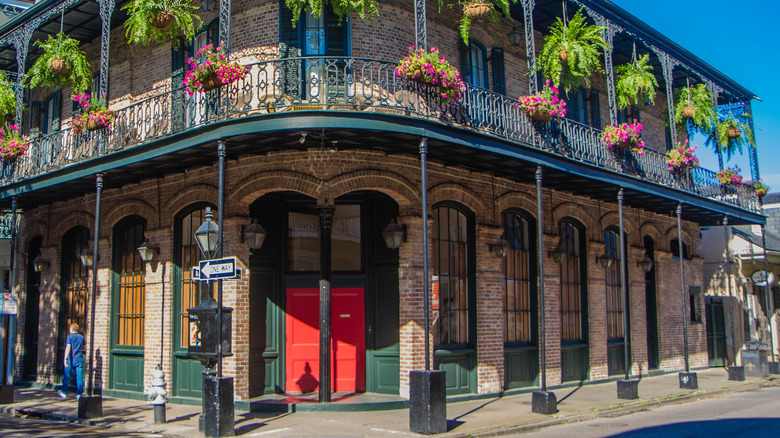
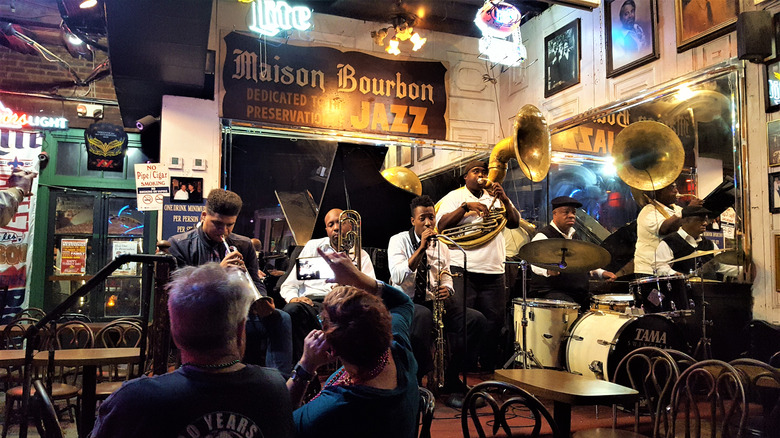
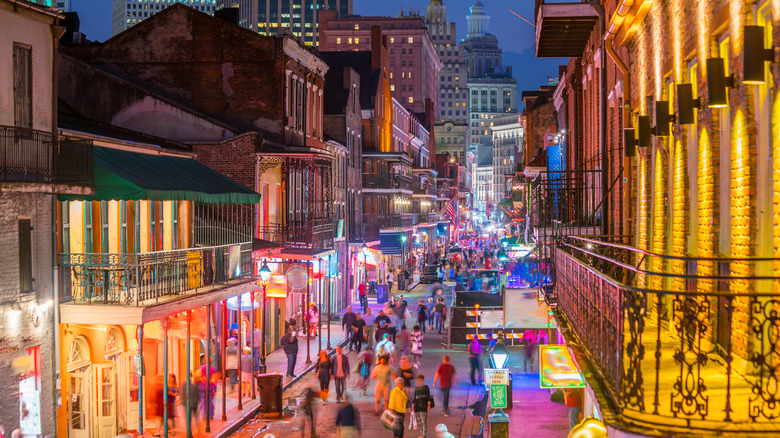
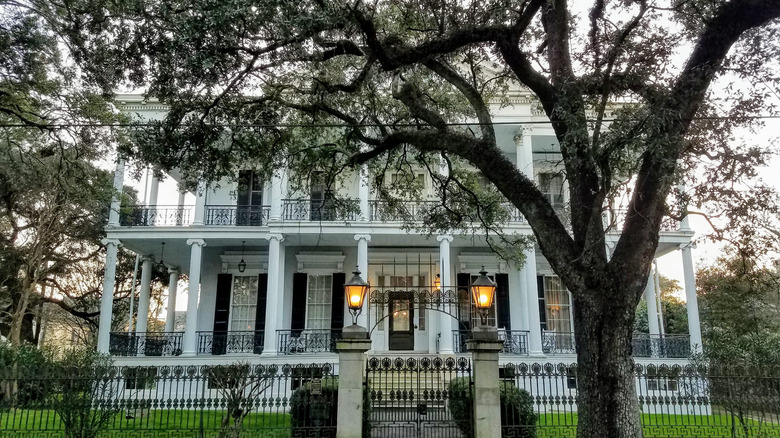
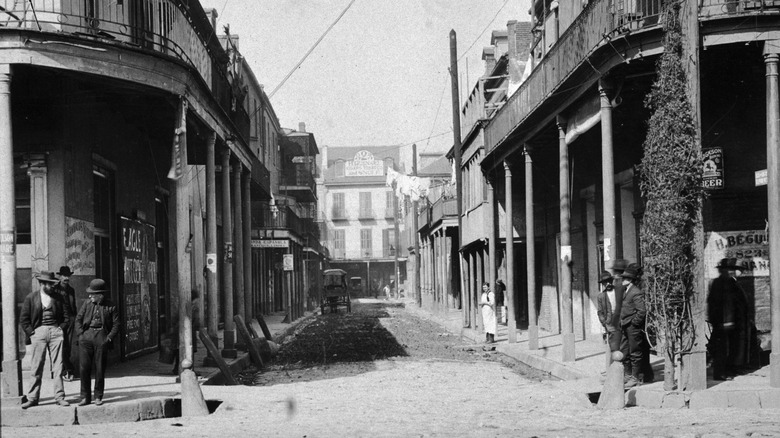
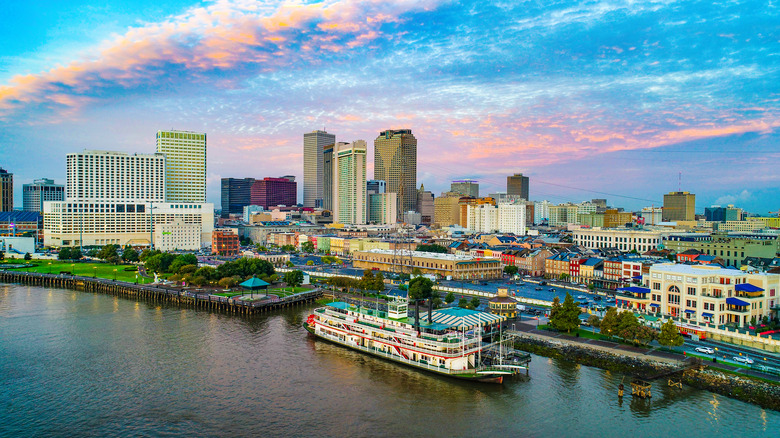
0 Response to "Big Easy Jazz New Orleans 1999 Art"
Post a Comment